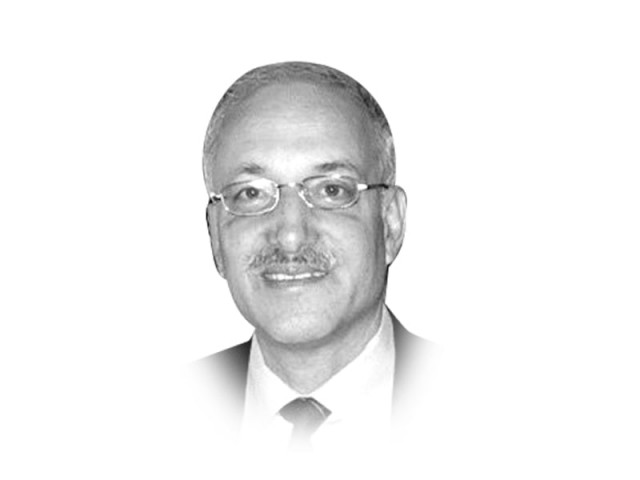What kind of change?
Does PTI have anything to offer regarding changing our India-centric policy, drone attacks and dealing with the army?

What kind of change?
These ideological aspirations have been built up by our own rulers since the creation of the country, mostly with a view to creating a citizenry that would support the creation of a garrison state in which large portions of the budget could be given to the military; foreign policy would be made subservient to the imperatives of national security (and eventually of the army); and the Muslim world would be made to pay for oil imports and even for continuing a war with India if necessary. Even the Taliban and other militants were supported, and are even now being supported, in order to fight India in a proxy war; and the Haqqanis are being preserved to provide insurance against an attack by India on the eastern and the western borders at the same time. In short, it is our military’s India-centric policy which has created much of our troubles while the politicians get blamed for ‘corruption’. But blunders are more to blame for our isolation in the international community, lack of law and order at home (remember the Kalashnikov culture that Zia’s support of the US proxy war against the Soviets ushered in); deaths by drone attacks; and the suicide attacks by the Taliban.
Now the first question is whether the ‘change’ promised by the PTI of Imran Khan has anything concrete to offer regarding the change of this India-centric policy? I have not heard or read any definite stand on this and a clarification would be welcome.
Secondly, while Imran Khan is right that drone attacks kill many innocent people, he has not answered two questions. First, why is it that senior army officers, including a major general, claim that they are useful since they eliminate al Qaeda and other militant leaders? And, secondly, does he propose to use the infantry instead of the drones? Of course, the militants will not wait for the infantry to arrive and more ‘infantarians’ will die, but what is the solution? Perhaps Imran Khan’s solution is to stop the war altogether. But the TTP has rejected the PM’s offer for peace and will only lay down arms if the government imposes sharia (their version, of course) and presumably if we accept the overall suzerainty of Mullah Omar. It will mean giving parts of Fata and maybe even Swat and Buner to Taliban control and influence, but the PTI has not told us if this will be a violation of the rights of our citizens or the sovereignty of the state.
Thirdly, Imran Khan was quiet about the army and its role in policymaking for some time, till a couple of days ago when he told journalists that he would ensure that it and the ISI would work under him. Of course, the present situation, known to all and sundry, is that nuclear policy, foreign policy, our Kashmir policy and other key decisions are in the hands of the army. The politicians are there to be corrupt in their small fiefdoms and take the blame for all policies and their own incompetence, but they do not control the policy of giving drones the use of our air fields nor other important matters. Even such matters as the railways — though there is both incompetence and corruption in the railway department — owe something to the fact that the army created the National Logistics Cell (NLC) in order to convey American weapons to the fighters against the Soviets and now the NLC gets revenue for carrying goods across the country, which the railways used to get. Will Imran Khan reverse this? Can he strike at the roots of the power of the military, which is not just political influence but also a lot of economic muscle in the form of banks, insurance companies, manufacturing, landed estates, universities and schools and so on? How exactly will the PTI deal with such colossal power? There is nothing in the papers which can guide us about such things.
The answer to such questions will guide serious voters further in their desire for better governance. Otherwise, public emotion has been the prelude to many governments, including those of Mussolini and Hitler.
Published in The Express Tribune, November 15th, 2011.
















COMMENTS
Comments are moderated and generally will be posted if they are on-topic and not abusive.
For more information, please see our Comments FAQ